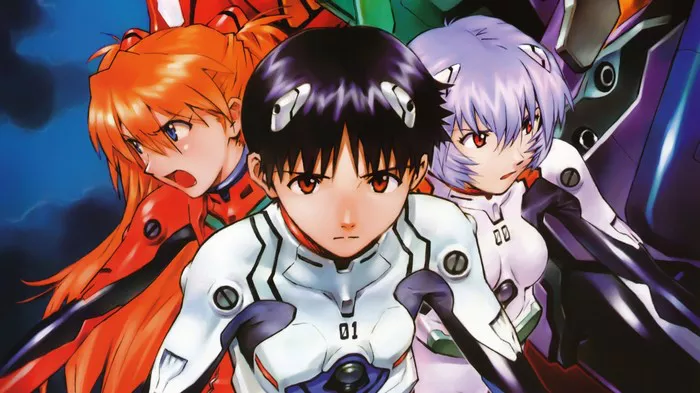Neon Genesis Evangelion, a seminal anime series known for its complex characters, existential themes, and mind-bending narrative, has captivated audiences since its debut in the 1990s. Central to the series is the enigmatic protagonist Shinji Ikari, whose journey of self-discovery and existential crisis unfolds against the backdrop of a world teetering on the brink of destruction. In this comprehensive guide, we’ll delve into the mysteries surrounding Shinji’s actions and examine the question of whether Shinji reset the world in the iconic anime.
The Enigma of Evangelion: A Brief Overview
Before delving into Shinji’s potential role in resetting the world, it’s essential to understand the overarching themes and narrative structure of Neon Genesis Evangelion. Set in a dystopian future where humanity faces existential threats from enigmatic beings known as Angels, the series follows the exploits of NERV, a paramilitary organization tasked with defending humanity using giant bio-mechanical robots called Evangelions.
At the heart of the story is Shinji Ikari, a reluctant pilot thrust into the cockpit of Evangelion Unit-01 to combat the Angels and protect humanity. As Shinji grapples with his own insecurities, trauma, and existential angst, he becomes embroiled in a series of increasingly surreal and introspective battles that blur the lines between reality and illusion.
The Instrumentality Project: A Plan for Human Evolution
One of the central plot threads in Neon Genesis Evangelion revolves around the Instrumentality Project, a mysterious plan orchestrated by the shadowy organization SEELE to initiate human evolution and transcendence. The specifics of the Instrumentality Project are shrouded in secrecy, but its ultimate goal is to merge all individual consciousnesses into a single collective entity, thereby eliminating the barriers between human souls and achieving a state of godhood.
Throughout the series, various characters, including SEELE’s agents and members of NERV, seek to further the goals of the Instrumentality Project, often at great personal cost. Shinji’s own journey becomes intertwined with the machinations of SEELE as he grapples with questions of identity, purpose, and the nature of existence.
The End of Evangelion: A Climactic Conclusion
The culmination of Shinji’s journey and the overarching narrative of Neon Genesis Evangelion occurs in the film The End of Evangelion, an alternate retelling of the series’ final episodes. In this visually stunning and thematically dense film, Shinji confronts his deepest fears, desires, and insecurities as he navigates the apocalyptic events unfolding around him.
At the climax of The End of Evangelion, Shinji is faced with a momentous decision: whether to accept the Instrumentality Project and merge all human souls into a collective consciousness or reject it and affirm individuality and free will. In a surreal and introspective sequence, Shinji grapples with his own sense of self-worth and ultimately chooses to reject the Instrumentality Project, affirming his humanity and embracing the complexities of existence.
The Theory of World Reset: Did Shinji Rewrite Reality?
One of the most hotly debated topics among Evangelion fans is the question of whether Shinji’s actions in The End of Evangelion resulted in a reset of the world or a reimagining of reality. Proponents of the “world reset” theory argue that Shinji’s rejection of the Instrumentality Project triggered a cataclysmic event that rewrote the fabric of reality, creating a new world where individuality and free will reign supreme.
According to this interpretation, Shinji’s decision to reject the Instrumentality Project represents a decisive break from the cyclical patterns of human history and a bold affirmation of the human spirit. By choosing to embrace individuality and reject the false comforts of collective consciousness, Shinji initiates a profound transformation that reshapes the world and allows humanity to chart its own destiny.
Conclusion: The Legacy of Neon Genesis Evangelion
The question of whether Shinji reset the world in Neon Genesis Evangelion remains open to interpretation, inviting fans to explore the complexities of the series’ narrative and draw their own conclusions. Whether viewed as a metaphorical allegory for the human condition or a literal reimagining of reality, Shinji’s journey in Evangelion continues to captivate audiences and inspire intense debate decades after its initial release.
As fans continue to dissect and analyze the intricacies of Neon Genesis Evangelion, one thing remains clear: the series’ enduring legacy as a groundbreaking work of anime storytelling that challenges conventions, pushes boundaries, and explores the depths of the human psyche. Whether it’s through Shinji’s existential crisis, the mysteries of the Instrumentality Project, or the mind-bending twists and turns of its narrative, Evangelion continues to resonate with audiences around the world, leaving an indelible mark on the medium of anime and popular culture as a whole.

